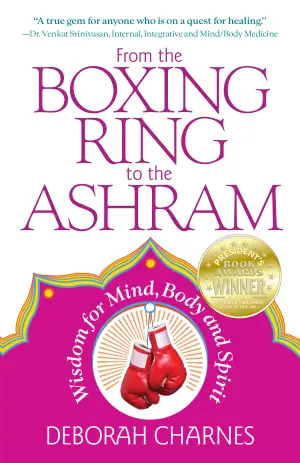Unearthing Intrigue: A Review of Children of Radium: A Buried Inheritance by Joe Dunthorne
As someone deeply fascinated by the complexities of history and personal narratives, Joe Dunthorne’s Children of Radium: A Buried Inheritance beckoned me like a siren song. This remarkable investigative memoir delves into the author’s family history with the same meticulous craft that has defined his previous works. However, what sets this book apart is its exploration of inherited guilt—a subject that intrigues and unsettles in equal measure.
At its core, Dunthorne’s journey begins with the seemingly innocuous gift of a ring, supposedly an heirloom that escaped the Nazi regime in 1935. What unfolds is not just a search for his grandmother’s heroic past but a harrowing uncovering of his great-grandfather Siegfried Merzbacher’s dark legacy as a chemist who played a role in developing chemical weapons for the Nazis. This ironic twist—shifting from uncovering victimhood to grappling with complicity—grips the reader’s attention from the very first page.
Dunthorne’s writing is a seamless blend of dry wit and poignant empathy. He captures the disorientation of confronting painful truths about one’s lineage beautifully, especially when he remarks, "What was harder to comprehend was how I had managed to forget most of what she actually told me, and work my way back to the story I preferred to believe in." His prose strikes a balance, artfully navigating the murky waters between the glorified past he grew up believing and the unsettling complexities that lie beneath.
The strength of Children of Radium lies in how it embodies the maddening contradictions of real people. Dunthorne refuses to simplify his ancestors into mere heroes or villains. His great-grandfather emerges as both a scientific prodigy and a moral coward, while his grandmother is portrayed as a survivor burdened by trauma that manifests in unexpected cruelty. This nuanced portrayal compels readers to reflect on the broader question of how ordinary lives become enmeshed in extraordinary evil.
The book’s structure is equally compelling, artfully weaving between Dunthorne’s present-day investigations and the historical narratives of his family members. Some passages, particularly those delving into Siegfried’s psychiatric records, momentarily slow the pace, but they serve as a reminder of the complexities we often overlook in pursuing clarity. I found myself deeply affected by the scene where Dunthorne receives German citizenship as a descendant of Holocaust victims, encapsulating the complex interplay of guilt, identity, and historical memory. The moment is layered; it offers a sense of connectedness while simultaneously provoking questions about redemption and the past’s weight.
While the book is a triumph in literary nonfiction, it occasionally wrestles with pacing, particularly in sections that delve deep into scientific minutiae. Dunthorne’s humility sometimes comes across as rhetorical caution, which can leave certain ethical questions dangling. Some readers might crave a more forceful reckoning with his great-grandfather’s actions; yet, this restraint also allows for reflection on the nature of complicity in a historical context.
In conclusion, Children of Radium: A Buried Inheritance is a poignant exploration of familial legacies and inherited guilt that resonates profoundly with anyone interested in how history shapes personal identities. It is a book that demands contemplation, inviting readers to engage with the uncomfortable truths of their own histories. If you are drawn to nuanced narratives that challenge your preconceptions and invoke empathy, this book is a must-read. Dunthorne’s exploration leaves you reflecting not just on his story but on the larger fabric of memory and morality we all navigate.
Discover more about Children of Radium: A Buried Inheritance on GoodReads >>







